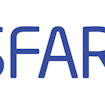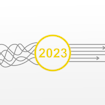
Updated January 2024
Over the last 20 years, SFARI has supported almost 500 investigators throughout the world in support of our mission: to improve the understanding, diagnosis and treatment of autism spectrum disorders (ASD) by funding innovative research of the highest quality and relevance. The past two decades have brought a lot of changes and discoveries in autism research, with new areas of investigation opening and new technologies being applied. It is important that SFARI keeps up with these changes to ensure that our funding is as impactful as possible, and thus we make periodic efforts to assess the state of the field and set our strategic priorities for the future. We have therefore adjusted our 2024 request for applications (RFA) schedule to ensure that the SFARI science team can devote sufficient time and energy to such a strategic planning effort.
The first RFA in 2024 will be the Bridge to Independence (BTI) RFA, which is already open and for which applications are due January 10, 2024. In an effort to strike a continued balance between funding novel and creative research projects conceived by our investigators as well as funding continuing work on topics in high-priority areas identified by SFARI, we will hold one call for Pilot Awards in 2024, in tandem with a call for continuation funding for former Pilot Award grantees whose projects have been successful. We will also hold a targeted RFA on Bridging Early Neurodevelopment and Emerging Neural Circuits, as well as a call for proposals for an updated version of SFARI Gene. SFARI continues to be a key participant in the Shenoy Undergraduate Research Fellowship in Neuroscience (SURFiN), and the Supplement to Enhance Equity and Diversity program (SEED) remains open for applications on a rolling basis. More information on these RFAs and our future plans is below.
Now Open for Applications: Bridge to Independence (BTI) Award Program
The SFARI BTI Award engages talented early-career scientists to pursue research in autism and facilitates their transition into independent faculty positions. This year, the BTI award specifically supports scientists from diverse and/or historically underrepresented backgrounds. This award aims to advance our mission by supporting a pathway that will lead to greater diversity in our scientific community. Future awardees will join all past and current cohorts in activities that will empower them to conduct cutting-edge, high-impact research, while simultaneously contributing to a more inclusive scientific environment. Applications are due January 10, 2024.
Updates to the 2024 Pilot Award Program
In an effort to have a more regular cadence of Pilot Award RFAs, to allow investigators to plan, we will accept Pilot Award applications roughly every 8 months. The only Pilot Award RFA for 2024 will open in late Spring of 2024, with applications due in the early Summer of 2024. The following Pilot Award RFA will be announced in early 2025.
For the 2024 cycle, the Pilot Award program will be offered for any exploratory, biologically grounded work that is relevant to ASD, including work in human subjects. As with other Pilot projects, proposals in human subjects should be relevant, novel, exploratory, high-risk and with the potential for transformative results. They may test new mechanisms, employ new technology or analytics, or take innovative approaches to phenotyping or stratification that stand to move the field forward in transformative ways. Recognizing that sufficiently-powered work in humans can be costly, projects employing human subjects will have the option for a separate (higher) budget track, as detailed in the forthcoming RFA.
Continuation funding for past Pilot projects
In 2024, we will offer a separate, competitive track for applications to continue previously awarded successful Pilot projects. As always, the goal of the Pilot RFA is to seed novel, exploratory, high-risk and potentially high-impact projects, with the idea that successful Pilot projects will generate the preliminary data necessary to obtain continued funding. We have always intended for recipients of successful SFARI Pilot Awards to seek funding from other sources to continue their projects, and indeed we have found that Pilot projects often lead to successful applications to the NIH or other government funding agencies. We recognize, however, that some of these projects remain too risky or otherwise are not a priority for other funders, yet remain relevant and important to SFARI’s mission. We will therefore be opening a mechanism in 2024 for past SFARI Pilot grantees to apply for continuation funding for previous Pilot projects.
The continuation mechanism is intended for projects that were successful during their initial Pilot funding, remain relevant to ASD, and which are not well suited for funding from other sources. Full details of this RFA will be announced together with the Pilot Award RFA in April 2024, due in June 2024. As with the original Pilot RFA, these applications for continuation funding will be reviewed first by the SFARI science team, and then a subset will be peer-reviewed by an external review panel.
Pausing the Human Cognitive and Behavioral Science (HCBS) RFA
The Human Cognitive and Behavioral Science RFA will not be offered in 2024. Over 20 awards were made under this RFA from 2021 to 2023, and several related awards were made previously under our Novel Outcome Measures RFA. Many of these projects are still in progress, having been delayed by COVID-related impacts, and we are eager to see the results of these projects to inform future RFAs in this area. In 2024, proposals for novel, exploratory research on cognition or behavior in autism may be submitted to the Pilot RFA, as described above.
Evaluating the Genomics RFA
Recent calls for applications under the umbrella of ‘genomics’ have covered systems biology, functional genomics and foundational efforts toward the development of gene-targeted therapies. Over the next year and beyond, our plans for future funding calls in this area will be informed by the results that emerge from current awards and recommendations from our strategic planning process. Given the wide-ranging nature of this work, and the pace at which the relevant technology is evolving, we may decide to invite applications in more targeted areas. This will allow us to take advantage of new opportunities in the genomics of ASD and to shape review panels that are well matched to the subject matter.
Targeted RFA Bridging Early Neurodevelopment and Emerging Neural Circuits
There is accumulating evidence that many genes implicated in ASD susceptibility affect the timing and execution of the programs that govern the differentiation of cortical neural progenitor cells into mature neurons. Depending on the gene and the experimental system, mutations in these genes may either accelerate or delay the normal timing of differentiation. Beyond the cortex, autism susceptibility genes have also been implicated in altered development of other brain regions as well. Although it is generally assumed that these early neurodevelopmental disruptions will have significant consequences for the later wiring of neural circuitry, and the eventual function of these circuits, there have been only limited efforts to bridge this gap. In light of this opportunity to build on recent findings, we are planning an RFA that will invite developmental neurobiologists, circuit biologists and researchers from other relevant fields to collaborate, with an eye toward identifying convergent changes in ASD-relevant circuits. In preparation for this RFA, we will involve the community to shape its content and goals.
Shenoy Undergraduate Research Fellowship in Neuroscience (SURFiN)
The goal of the SURFiN program is to spark and sustain interest in neuroscience among undergraduate students from diverse backgrounds underrepresented in science. This program provides paid, mentored research assistantships for undergraduate students during the academic year. SURFiN invites a subset of labs supported by SFARI, the Simons Collaboration on the Global Brain (SCGB) and the Simons Collaboration on Plasticity and the Aging Brain (SCPAB) to participate. Undergraduate applications for SURFiN will open in Spring 2024.
Additional information
Over the next few months, we will be providing more information about our planned targeted initiatives via SFARI.org and the SFARI newsletter. Investigators who are unsure of which of the RFAs planned in 2024 would be the best fit for their project can contact [email protected] for further information. More information about SFARI scientific priorities can be found here.
We are excited for our upcoming strategic planning effort and hope that it will yield new and innovative ideas for funding mechanisms in the coming years.
| RFA | Scope | Application Opens | Applications Due |
| Bridge to Independence (BTI) | Support for talented scientists from diverse and/or historically underrepresented backgrounds to pursue research in autism and facilitate their transition from a mentored-training position to independent faculty positions | October 10, 2023 | January 10, 2024 |
| Pilot | Conceptually novel, exploratory, high-risk and potentially high-impact projects studying ASD (including human subjects studies) | April 16, 2024 | June 18, 2024 |
| Continuation for Pilot Awardees | Continuation funding for past successful Pilot projects | April 16, 2024 | June 18, 2024 |
| Bridging Early Neurodevelopment and Emerging Neural Circuits | Collaborations between developmental and circuit neurobiologists to identify convergent changes in autism-relevant circuits | June 11, 2024 | September 12, 2024 |
| SFARI Gene | Proposals for an updated version of the SFARI Gene database | TBD | TBD |
| Shenoy Undergraduate Research Fellowship in Neuroscience (SURFiN) | Program for undergraduate students from diverse and/or historically underrepresented backgrounds to gain in-person research experience in labs supported by the Simons Foundation’s Autism and Neuroscience division | March 26, 2024 | May 1, 2024 |
| SFARI Supplement to Enhance Equity and Diversity (SEED) | Supplement to existing SFARI grants for the recruitment of new lab members from American underrepresented minority groups at the postdoctoral level | Rolling | Rolling |
Editorial Correction:
A correction was made January 31, 2024: An earlier version of this blog post stated that the continuation funding mechanism would be open to BTI awardees. The eligibility criteria for the continuation funding mechanism has since been determined to be limited to past Pilot Awardees.


